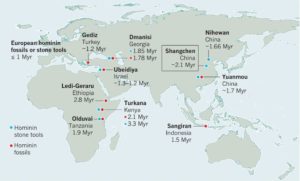Facts vs Opinions
- By ajaysunder
- In Blog

One of the first lessons every new Management hire ( Be it an Analyst /Consultant / Business hire ) needs to learn ( and learn fast ! ) is the difference between a fact and an opinion.
To define:
Fact – A fact is something that is verifiably true.
Opinion – An opinion is something you think is or might be true.
The worst thing one can do as is to present an opinion as if it were fact.
If you are in a client facing role, you will be lucky to get over this maybe once or a few times (very lucky!!). But sooner than later, there would be an open question on your credibility, and you would not be promoted at the next promotion cycle.
A hypothetical situation.
A vendor telling our XXX product saw a strong growth of more than 20% in the previous quarter in the APAC region.
This is a fact from the vendor.
A vendor telling you that ..the demand for this product was low and we think the overall market for the product may be growing at less than 10% for the region.
This is an opinion from the vendor. The opinion maybe driven from the fact that they did not grow that much. But maybe flawed opinion. There could be various situations e.g the market is growing at a double digit % but the vendor’s product are not perceived by the customers well. So in this case if you take the vendor’s opinion on the market as a fact then you are portraying the wrong image of the market.
The opinion from the vendor in this case has to recognised for what it is… An opinion ..and needs to be verified .
It is a big deal to get facts and opinions mixed up.
Today, on social media especially, I’m even more surprised how often facts and opinions are swapped.
What is amusing today is that on social media ,sometimes people express an opinion with such conviction and confidence in order to portray the opinion as fact.
Saying a wrong fact with incredible confidence and conviction or the fact that it comes from the CEO of a Fortune 500 does not change an opinion into a fact.
The tone of the message or the stature/seniority of the person delivering has no bearing on its actual accuracy.
Being able to distinguish between facts and opinions is a lifelong skill I aim to aspire
· The first skill is trying to clearly define whether what you’re thinking, saying, or feeling is a fact or an opinion.
· The second skill is being able to see clearly when people portray their opinions as facts, so you can see it for what it really is… an opinion.
This is why it is important for executives to ask a lot of “why” questions.
Business Head : “We should offer ABC at XYZ price point .”
You : “Okay, why do you only prioritize ABC ?”
You : Why do you want to go at XYZ and not XYZ +/- 20%
· “Why” prompts fact finding.
· Why forces the other person to explain the facts
· Most importantly Why forces the other person to separate the facts from their opinions
Ofcourse in certain situations you may have no facts.
e.g In emerging markets and startup companies that have no precedent/ history, sometimes you have to go on your gut feel as there are no facts available on the market , competitors etc.
But in established markets and businesses, usually there’s a lot more data. Once you separate the facts from Opinions…then the opinions can be tested as hypotheses to determine their validity.
But then you are clear about the lack of facts and you as a decision maker would be prepared to change the course if you find out facts are different from what your opinion about the market /situation was.
Knowing this difference between Fact and Opinion takes a lot of risk out of decision making and improves your ratio of good decisions to bad.
You may also like

Africa’s evolution conundrum
- August 11, 2022
- by ajaysunder
- in Blog

Indonesia Ecommerce and the role of Warungs

5 stocks to buy for 2022 ……and beyond

